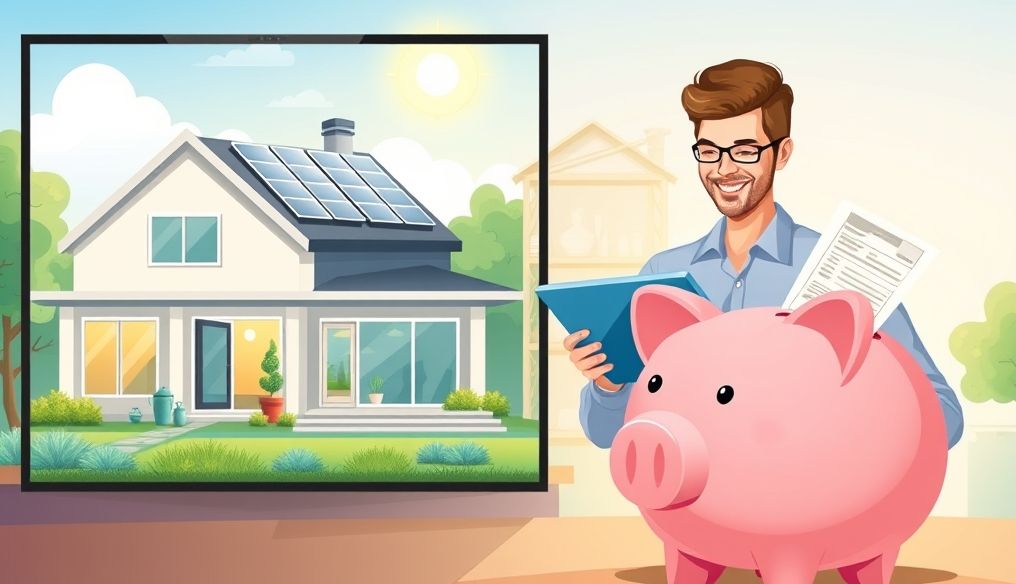Introduction: Why Should We Care About Saving Energy, Water, and Money?
In today's world, where the cost of living is constantly increasing, it is essential to find effective ways to reduce expenses. Electricity, water, and phone bills represent a significant portion of monthly expenses for households and individuals. In addition, conserving energy and water contributes to protecting the environment and reducing the carbon footprint. This article provides you with a comprehensive set of practical strategies and actionable tips to reduce your monthly bills and save money sustainably.
Chapter 1: Understanding Your Bills and Analyzing Your Consumption
The first step towards saving is understanding the details of your bills. Analyze your electricity, water, and phone bills for several consecutive months to identify consumption patterns. Does your consumption increase in the summer due to the use of air conditioners? Do you consume large amounts of water in the garden? Are you paying large sums for phone services you don't use?
Analyzing the Electricity Bill:
- Reading the Meter: Learn how to read the electricity meter and compare it with the bill to ensure accurate consumption.
- Understanding Charges: Understand the various charges included in the bill, such as consumption fees, service fees, and taxes.
- Identifying Consuming Devices: Use an energy consumption meter to identify the devices that consume the most electricity.
Analyzing the Water Bill:
- Reading the Meter: Learn how to read the water meter and compare it with the bill.
- Checking for Leaks: Inspect faucets, pipes, and toilets for any leaks.
- Comparing Consumption: Compare your consumption with the normal rate of household consumption.
Analyzing the Phone Bill:
- Reviewing Calls: Review the call history to identify unnecessary calls.
- Evaluating Services: Evaluate the additional services you pay for, such as voicemail and data services.
- Comparing Offers: Compare offers from different telecommunications companies to get the best price.
Chapter 2: Conserving Electricity at Home
Electricity is one of the largest sources of spending in most homes. Here are some effective strategies to conserve electricity:
Lighting:
- Replacing Bulbs: Replace traditional bulbs with energy-efficient LED bulbs.
- Using Natural Light: Take advantage of sunlight as much as possible.
- Turning Off Lights: Turn off lights when leaving the room.
Electrical Appliances:
- Unplugging Devices: Unplug unused electrical appliances, such as televisions and chargers.
- Using Energy-Efficient Appliances: When buying new appliances, choose appliances with an energy efficiency certificate.
- Maintaining Appliances: Maintain electrical appliances regularly to ensure their efficiency.
Heating and Cooling:
- Adjusting the Temperature: Adjust the temperature of the air conditioner and heater to a moderate temperature.
- Using Insulation: Insulate walls, windows, and doors to reduce heat or cold loss.
- Cleaning Filters: Clean air conditioner filters regularly.
Chapter 3: Saving Water at Home and in the Garden
Water is a precious resource that must be conserved. Here are some effective ways to save water at home and in the garden:
In the Bathroom:
- Reducing Shower Time: Reduce shower time and use water-saving showerheads.
- Fixing Leaks: Fix any leaks in faucets and toilets immediately.
- Using the Toilet Effectively: Use the toilet only when necessary and avoid using it as a trash can.
In the Kitchen:
- Fixing Leaks: Fix any leaks in faucets and dishwashers.
- Using the Dishwasher Effectively: Run the dishwasher only when it is full.
- Washing Vegetables and Fruits in a Bowl: Use a bowl to wash vegetables and fruits instead of letting the water run.
In the Garden:
- Watering Early in the Morning or Evening: Water early in the morning or evening to reduce evaporation.
- Using a Drip Irrigation System: Use a drip irrigation system to deliver water directly to the roots of plants.
- Collecting Rainwater: Collect rainwater for use in watering the garden.
Chapter 4: Reducing Phone and Internet Bills
In the digital age, phone and internet bills have become an integral part of our lives. Here are some tips to reduce these bills:
Reviewing the Plan:
- Assessing Needs: Assess your actual needs for calls and data.
- Comparing Offers: Compare offers from different telecommunications companies.
- Negotiating the Price: Negotiate with the telecommunications company to get the best price.
Using Alternatives:
- Communication Apps: Use free communication apps such as WhatsApp and Skype to make calls and send messages.
- Wireless Networks: Use free wireless networks instead of mobile data.
Managing Consumption:
- Monitoring Consumption: Monitor your consumption of data and calls.
- Disabling Automatic Updates: Disable automatic updates for applications.
- Downloading Content via Wi-Fi: Download large content via Wi-Fi instead of mobile data.
Chapter 5: Leveraging Modern Technologies to Save Energy and Water
Modern technology offers us innovative solutions to save energy and water. Here are some examples:
- Smart Devices: Use smart devices such as smart thermostats and smart light switches to control energy consumption remotely.
- Energy and Water Management Apps: Use mobile apps to manage energy and water consumption and receive alerts about excessive consumption.
- Solar Power Systems: Install solar power systems to generate electricity from solar energy.
Chapter 6: Changing Daily Habits to Save Money
Sometimes, simple changes in our daily habits can make a big difference in our bills. Here are some examples:
- Showering Instead of Filling the Bathtub: Showering consumes less water compared to filling the bathtub.
- Washing Clothes in Full Loads: Run the washing machine only when it is full.
- Cooking in Appropriate Quantities: Cook appropriate quantities of food to avoid wasting food and the energy used for heating.
Chapter 7: Regular Maintenance of Appliances and Equipment
Regular maintenance of appliances and equipment ensures their efficiency and extends their lifespan. Here are some tips:
- Cleaning Appliances: Clean electrical and water appliances regularly to remove dust and deposits.
- Checking for Leaks: Inspect pipes, faucets, and toilets for any leaks.
- Changing Filters: Change air conditioner and dishwasher filters regularly.
Chapter 8: Investing in Energy-Efficient and Water-Saving Appliances
Investing in energy-efficient and water-saving appliances may be expensive at first, but it saves money in the long run. Here are some examples:
- Water-Saving Washing Machine: A water-saving washing machine consumes less water and electricity.
- Energy-Efficient Dishwasher: An energy-efficient dishwasher consumes less electricity and water.
- Solar Water Heater: A solar water heater heats water using solar energy.
Chapter 9: Searching for Offers and Discounts from Energy, Water, and Telecommunications Companies
Many energy, water, and telecommunications companies offer deals and discounts to encourage customers to conserve consumption. Look for these offers and discounts and take advantage of them.
- Energy Saving Offers: Some companies offer energy saving offers, such as replacing old appliances with new energy-efficient appliances.
- Discounts on Low Consumption: Some companies offer discounts to customers who consume small amounts of water or electricity.
- Offers on Phone and Internet Packages: Telecommunications companies offer deals on phone and internet packages.
Chapter 10: Financial Planning and Budgeting
Finally, include electricity, water, and phone bills in your monthly budget. Allocate a specific amount for each bill and try to stick to that amount. Track your expenses and make adjustments to your consumption habits if necessary.
By following these strategies and tips, you can significantly reduce your electricity, water, and phone bills and save money sustainably. Remember that saving is not just about reducing expenses, but also about investing in a better future for you and the environment.




